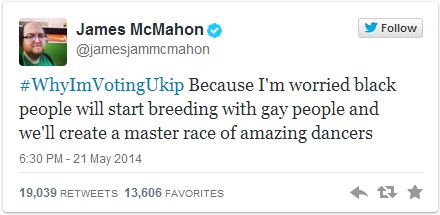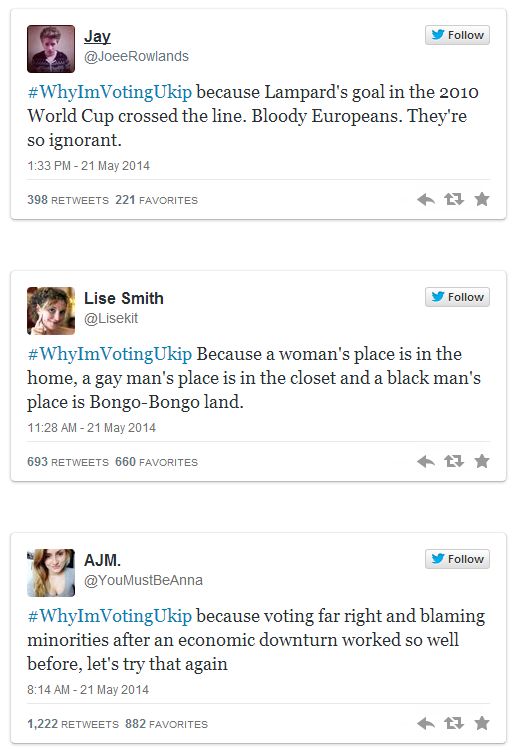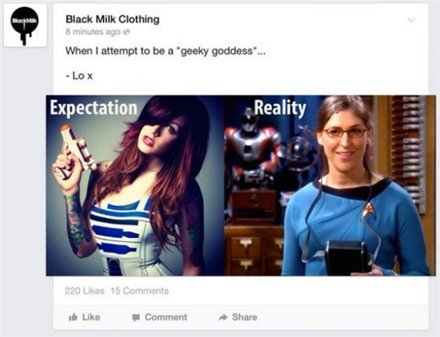A few days ago, the British people were asked to vote in the European Elections. One of the parties standing, UKIP, decided to use Twitter to engage with voters and ask them why they would vote for UKIP, launching the hashtag #WhyImVotingUkip. This was quickly hijacked and thousands of people started to tweet sarcastic comments using it. The hashtag was soon in Twitter’s trending topics but not in the way UKIP were expecting. How did the far-right party react to that? By doing absolutely nothing except tweeting about how they could help the UK - there was no reaction to what was actually happening.


When dealing with a social media failure like the one UKIP is facing there are a lot of things companies have done that you should avoid, like deleting comments, not apologising or even arguing with their customers. The examples below will tell you more about how a minor social media fail can be turned into a real social media disaster when you don’t know how to deal with it.
Delete Comments and Make Accusations
In May 2014, Black Milk Clothing, an Australian clothing company, posted a picture on Facebook for international Star Wars day. This showed actress Mayim Bialik - who plays Amy in the TV series The Big Bang Theory – compared to another woman with the comment “When I attempt to be a geeky goddess” with the woman on the left being the expectation and the actress being reality. Followers found it offensive and started to react, quickly asking the brand to remove the picture. Black Milk didn’t bother apologizing or removing the picture, instead they just called their customers sexist. They even started deleting posts and banning people from their Facebook page. When they finally deleted the picture they said that there was nothing to be offended by and that the post was a joke. A few days later, they finally released a new status saying how much the team was sorry and that the manager was taking all responsibility for the whole thing.

In the same vein, back in 2012 a restaurant called Applebee’s fired a waitress for posting a picture of a receipt on Facebook. It led to a lot of negative comments from customers asking the waitress to be reinstated. To manage the situation Applebee’s decided to publish a comment inside a status to explain the situation. This was a bad idea, as nobody could see it. Then, they deleted comments and hid the statuses that had gained thousands of comments. Despite being attacked with so many negative comments, Applebee’s stood their position, even arguing with customers.
Volkswagen found how much worse deleting comments can make a situation when they were assaulted with negative comments after launching a campaign asking what they could do to improve their company. They simply ignored all the negative comments and deleted them. This just led to many more negative comments.
Be a Faceless Corporate Entity
When you have to deal with a social media incident the obvious thing to do is to manage it on the same social media platform. But Taco Bell got that wrong when they decided how to deal with a picture of an employee playing with food posted on Facebook. Instead of apologising and explaining the situation on Facebook, they published a press release on their website, ignoring their customers and even disabling comments on their Facebook page.
Another thing to avoid when dealing with a social media incident is responding with automated tweets or comments. That’s something Progressive Insurance learned when they posted the exact same response to a host of negative tweets received when they defended a man who had killed a woman insured by them. Angry about the story, people were even angrier at the insurers’ responses and this resulted in much more negative advertising for the brand.
Leave it to the Interns
The last thing you should know when interacting on social media is how they actually work and how to manage them. HMV’s directors surely wished they had learned about Twitter when an employee started to live-tweet a meeting at which more than fifty employees were being fired. If they had known how to deal with social media they could have stopped all the tweets before they went viral.
To recap, here are all the things to avoid when dealing with a social media fail if you don’t want it to become a disaster:
- Not responding and ignoring comments
- Leave too much time before responding or reacting to a fail
- Deleting posts or comments
- Not apologizing
- Automated responses
- Arguing with a customer
- Avoiding social channels when the fail is happening on a social media